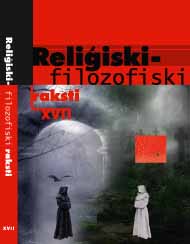Karš un psihoanalīze (Freida risinājums)
War and Psychoanalysis – Freud’s Case
Author(s): Igors ŠuvajevsSubject(s): Philosophy
Published by: Latvijas Universitātes Filozofijas un socioloģijas institūts
Summary/Abstract: The article sketches out the differences of the so-called ‘August event’ in Germany and Austro-Hungary. ‘Kriegsneurouse’ or war shock is a significant element in the context of the First World War. The ancient medical principle is transformed in the psychiatry discourse: salus aegroti suprema lex becomes salus populi suprema lex. The article examines the brutal medical practices in psychiatry and stigma associated with the diagnosis of hysteria and neurosis. The Congress on psychoanalysis in Budapest is dedicated to the study of war neurosis. By analysing the positions of psychoanalysts, we cannot bypass their lack of condemnation of war, affording the understanding of war as a natural catastrophe, not realising the celebrated psychoanalytical critique of society. Freud does not have a direct experience with war, however he offers his own viewpoint. It presents itself in the investigation of Wagner-Jauregg activity in relation to the so-called electrization. Freud compares doctors with cannons behind the front lines. In relation to war and Freud, one can distill at least two aspects: the private and the psychoanalytical. The articles looks at Freud’s correspondence which reveals contemplations about his relatives, psychoanalysis and evaluation of war events. Additionally, it looks at Freud’s insecurity and suspense as well as father’s pride of sons. The article looks at Freud’s elaborations during war time. Furthermore, the article looks at Freud’s metapsychological visions. His article „Zeitgemässes über Krieg und Tod” and the pre-reading „Wir und der Tod” receives special attention. The transition to mass analysis is sketched out with „Massenpsychologie und Ich-Analyse” along with its contextual and individual parallels. An important development can be found in his work entitled „Das Unbehagen in der Kultur” in which Freud offers an analysis of various life techniques. The works „Vergänglichkeit” and „Warum Krieg?” are also discussed in conclusion. The article is concluded with a contextual signification of the outcome of the war and Freud’s solution to the identity question. It is reminded that according to Freud the beginning of morality in cultures is a violent act. This view needs to be taken into account in Freud’s experience and understanding of war. At the same time, it places emphasis on turning against violence, illusory existence, availing oneself to stupefaction, reversed forms of consciousness.
Journal: Religiski-filozofiski raksti
- Issue Year: XVII/2014
- Issue No: 1
- Page Range: 35-73
- Page Count: 39
- Language: Latvian

